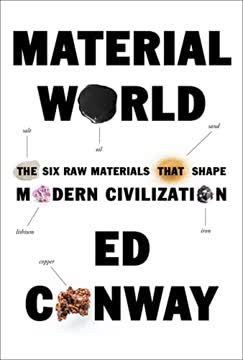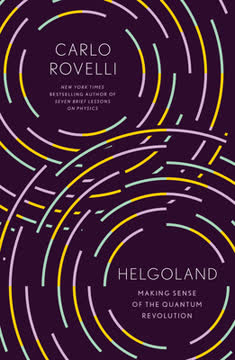Key Takeaways
1. Walt Whitman: A Revolutionary American Poet
"The United States themselves are essentially the greatest poem."
Breaking conventions. Walt Whitman emerged as a revolutionary figure in American literature, breaking away from traditional poetic forms and themes. His work celebrated the individual, democracy, and the American experience in ways that were unprecedented at the time.
Voice of America. Whitman saw himself as the poet of the common people, giving voice to the American spirit in all its diversity and complexity. He sought to capture the essence of American life, from the bustling cities to the vast natural landscapes, in his free verse poetry.
Lasting influence. Whitman's innovative style and bold themes have had a lasting impact on American literature and culture. His work paved the way for future generations of poets and writers to explore new forms of expression and tackle previously taboo subjects.
2. From Conventional Beginnings to Radical Poetry
"I am not content now with a mere majority. . . . I must have the love of all men and all women."
Early career. Whitman began his literary career as a conventional journalist and writer, working for various newspapers and producing unremarkable poetry and fiction. However, he gradually developed a unique voice and vision that would set him apart from his contemporaries.
Transformation. The turning point in Whitman's artistic development came in his mid-30s when he began to experiment with free verse and explore themes of democracy, sexuality, and the self. This transformation was influenced by:
- His experiences as a journalist and observer of American life
- His engagement with transcendentalist ideas, particularly those of Ralph Waldo Emerson
- His growing sense of America's potential as a democratic nation
Breaking boundaries. Whitman's new poetic style broke with traditional forms, embracing long, flowing lines and a more conversational tone. He also tackled subjects that were considered taboo at the time, such as the human body and sexuality, challenging societal norms and literary conventions.
3. The Birth of "Leaves of Grass": A Literary Watershed
"I greet you at the beginning of a great career, which yet must have had a long foreground somewhere, for such a start."
Revolutionary work. The publication of "Leaves of Grass" in 1855 marked a turning point in American literature. This slim volume of free verse poetry introduced Whitman's unique style and vision to the world, challenging conventional notions of what poetry could be.
Key features of "Leaves of Grass":
- Free verse form, breaking with traditional rhyme and meter
- Celebration of the individual and democracy
- Exploration of the body and sexuality
- Incorporation of American vernacular language
- Expansive, catalog-like lists embracing the diversity of American life
Evolution and growth. Whitman continued to revise and expand "Leaves of Grass" throughout his life, with each new edition reflecting his evolving ideas and experiences. The book grew from 12 poems in 1855 to nearly 400 in its final edition, becoming Whitman's life's work and a testament to his artistic vision.
4. Whitman's Celebration of the Self and Democracy
"I celebrate myself, and sing myself, And what I assume you shall assume, For every atom belonging to me as good belongs to you."
Individualism and unity. Whitman's poetry emphasized the importance of the individual while also recognizing the interconnectedness of all people. He saw democracy as not just a political system but as a way of life that celebrated diversity and equality.
Key themes in Whitman's work:
- The dignity and worth of every individual
- The interconnectedness of all people and things
- The beauty and importance of the human body
- The democratic spirit of America
- The power of nature and its relationship to humanity
Cosmic vision. Whitman's poetry often took on a cosmic scope, connecting the individual to the wider universe and exploring spiritual themes. This expansive vision helped to establish him as a uniquely American voice, capturing the country's sense of possibility and potential.
5. The Civil War: A Turning Point in Whitman's Life and Work
"The real war will never get in the books."
Personal impact. The Civil War had a profound effect on Whitman, both personally and artistically. His brother George's enlistment in the Union Army led Whitman to Washington D.C., where he would spend much of the war years.
Witnessing history. Whitman's experiences during the Civil War provided him with first-hand exposure to the realities of conflict and human suffering. He observed:
- The devastating impact of battle on soldiers and civilians
- The political and social upheaval of the time
- The heroism and sacrifice of ordinary Americans
Artistic transformation. The war years marked a shift in Whitman's poetry, leading to more somber and reflective works. His collection "Drum-Taps" and poems like "When Lilacs Last in the Dooryard Bloom'd" directly addressed the war and its aftermath, showcasing a more mature and nuanced poetic voice.
6. Whitman's Role as "Wound Dresser" and Hospital Visitor
"I am the man, I suffer'd, I was there."
Compassionate care. During the Civil War, Whitman took on the role of volunteer nurse and hospital visitor, tending to wounded and dying soldiers. This experience had a profound impact on his life and work, deepening his understanding of human suffering and resilience.
Hospital work:
- Visited thousands of soldiers in Washington D.C. hospitals
- Provided emotional support and practical assistance
- Wrote letters for soldiers to their families
- Distributed small gifts and comforts
Poetic inspiration. Whitman's experiences in the hospitals directly influenced his poetry, leading to powerful works like "The Wound-Dresser" and informing his broader themes of compassion and human connection.
7. The Legacy of Walt Whitman: America's Poet of Democracy
"I am large, I contain multitudes."
Enduring influence. Whitman's work has had a lasting impact on American literature and culture, influencing generations of poets, writers, and thinkers. His celebration of democracy, individualism, and the American spirit continues to resonate today.
Key aspects of Whitman's legacy:
- Pioneering free verse poetry
- Expanding the boundaries of acceptable subject matter in literature
- Embracing and celebrating American diversity
- Influencing the development of American identity and culture
Contemporary relevance. Whitman's themes of equality, democracy, and the interconnectedness of all people remain relevant in modern America, making his work a continual source of inspiration and reflection for readers and writers alike.
Last updated:
Review Summary
Readers generally praised Walt Whitman: A Life for its thorough research and insights into the poet's complex personality. Many appreciated the historical context provided, though some found the writing style dry or disjointed. Reviewers noted Whitman's self-promotion, evolving views, and impact on American literature. The book's treatment of Whitman's sexuality and relationships was seen as cautious but present. While some readers struggled with the biography's pacing, most found it a valuable exploration of Whitman's life and work, despite occasional critiques of its structure or prose.
Similar Books







Download PDF
Download EPUB
.epub digital book format is ideal for reading ebooks on phones, tablets, and e-readers.




